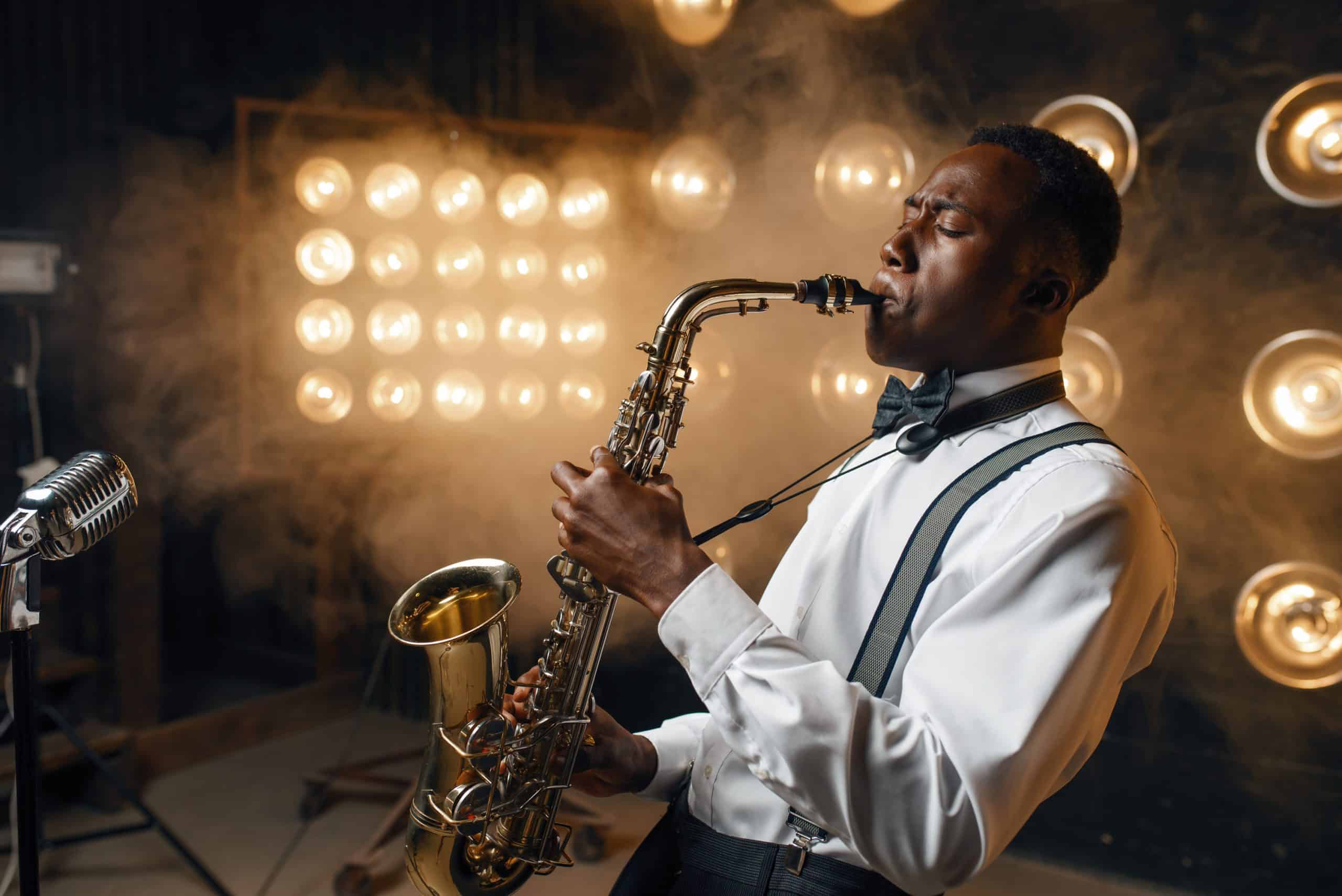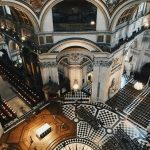London, the beating heart of Britain, holds a rich and varied cultural history that continues to echo in its architecture, its people, and most notably, its music. In the realm of jazz particularly, the city has played an instrumental role, being the nucleus where the rhythm and soul of this genre have flourished. This article will explore the best places in London where jazz enthusiasts and casual visitors alike can delve into the fascinating world of British jazz.
The National Jazz Archive
One cannot begin a journey into the history of British jazz without first setting foot in the National Jazz Archive. Nestled in the heart of London, the National Jazz Archive is a treasure trove that documents over a century of jazz heritage. It is a hub for researchers, historians, musicians, and jazz enthusiasts who are keen on tracing the roots and evolution of this dynamic genre.
The archive takes you on a trip back in time with its vast collection of periodicals, photographs, and personal papers of influential jazz musicians. Here, you can immerse yourself in the stories of both local and American jazz artists who have left an indelible mark on the British jazz scene. With its vast resources, the National Jazz Archive is a must-visit for anyone seeking to understand jazz as a cultural force that helped shape London’s music scene.
The Jazz Scene: Clubs and Live Music Venues
Jazz in London is not confined to the pages of an archive. To truly appreciate the rich history of British Jazz, one must experience it live in the very city where it thrived. Long-established clubs such as Ronnie Scott’s and 606 Club have been hosting both local and international jazz musicians for decades, providing a platform for them to showcase their artistry and contribute to the city's vibrant jazz scene.
Ronnie Scott’s, located in Soho, is perhaps the most iconic jazz venue in London, having been at the forefront of the city’s jazz scene since it was founded in 1959. Many great jazz legends, both British and American, have graced its stage, from Ella Fitzgerald to Zoot Sims.
Avez-vous vu cela : How can tourists participate in restoration projects of historical buildings in the Cotswolds?
On the other hand, 606 Club in Chelsea is renowned for promoting the best in British jazz. It has been instrumental in nurturing local talent, many of whom have gone on to make their mark on the international jazz scene. By visiting these clubs, you won’t just be listening to great music, you will be participating in a living, breathing part of London’s jazz history.
Jazz Walking Tour: Tracing the Roots
To explore the city’s jazz heritage in a truly immersive way, consider embarking on a Jazz Walking Tour. These tours, led by knowledgeable guides, take you through the streets of London, pointing out key locations that played a significant role in the development and history of British jazz.
The tour includes visits to famous music venues, former residences of jazz legends, and even places where iconic jazz recordings were made. By walking the same streets that once echoed with the sounds of jazz, you can gain a unique insight into the life and times of the musicians that contributed to the British jazz scene.
Cela peut vous intéresser : Which UK cities offer interactive workshops on post-war British fashion?
Black Cultural Archives: Highlighting Black Contributions to Jazz
The influence of Black musicians on the world of jazz is undeniable. To appreciate the full scope of the history of British jazz, it is essential to acknowledge and learn about the contributions of Black musicians. The Black Cultural Archives in Brixton provides a detailed look into the Black British experience, with a dedicated section for music and its impact on society, including jazz.
Here, you’ll find an extensive collection of photographs, ephemera, oral histories, and more that tell the story of Black musicians in Britain. This includes artists who migrated from the Caribbean and Africa, as well as those of African-American descent whose music left a lasting impression on the British jazz scene.
The British Library: A Trove of Jazz Literature and Recordings
Last, but certainly not least, the British Library offers a wealth of resources for anyone interested in learning about the history of British jazz. It houses an extensive music department, which boasts a remarkable collection of literature and audio recordings about jazz.
From books about the mechanisms of jazz music to biographies of jazz musicians, the library allows you to delve deep into the world of jazz. Moreover, it also hosts occasional exhibits and events, which provide a further wealth of information on the history and impact of this music genre. By visiting the British Library, you can enrich your understanding of British jazz and its undeniable influence on London’s music scene.
Jazz Exhibitions: A Visual Experience of Jazz History
Museums and galleries often provide visual experiences that complement the auditory treat of jazz music. One of the must-visit places for jazz enthusiasts is the Victoria and Albert Museum in Covent Garden. This renowned institution often hosts music-related exhibitions, and the history of jazz in Britain is no exception.
The Victoria and Albert Museum boasts a rich collection of jazz artifacts which include instruments used by famous jazz musicians, vintage records, concert posters, and much more. These exhibits not only offer a visual narrative of the British jazz scene but also underscore the genre’s influence on popular music, fashion, and culture at large.
In addition, The Photographers’ Gallery in Soho often features exhibitions showcasing the intimate relationship between photography and music. Past exhibitions have included stunning black-and-white photos of jazz icons, candid shots capturing the vibrancy of jazz clubs, and images that reveal the undulating soul of this music genre.
What sets apart these exhibitions is their ability to transport you back in time, providing a sensory experience that allows you to witness the history of jazz in a unique and evocative way.
London Jazz Festival: Celebrating the Legacy of British Jazz
If you find yourself in London in mid-November, you can't miss the London Jazz Festival. This annual event is a celebration of jazz in all its forms and offers a fantastic opportunity to dive headfirst into the city's vibrant jazz scene.
With over a hundred events spread across ten days, the festival showcases both the richness of British jazz and the genre’s international appeal. From concerts featuring local talent to performances by globally recognized artists, the festival provides a sweeping panorama of jazz music.
Yet, the London Jazz Festival is more than just performances. It also includes workshops, talks, and film screenings, aimed at enhancing your understanding of jazz. By immersing yourself in this festival, you get to not only enjoy the music but also deepen your appreciation of the genre’s roots and evolution.
Conclusion: Jazz Music – An Integral Part of London’s Cultural Fabric
The city of London, with its rich musical heritage, offers numerous opportunities for both casual visitors and jazz enthusiasts to delve into the world of British jazz. From the **National Jazz Archive** to the vibrant **jazz clubs** like Ronnie Scott’s, to the immersive **Jazz Walking Tour**, the city is teeming with experiences that bring the history of British jazz alive.
To truly appreciate the genre’s impact, a visit to the Black Cultural Archives is essential. It highlights the invaluable contribution of Black musicians to the world of jazz. The British Library, with its extensive collection of jazz literature and recordings, further allows you to deepen your understanding of this music genre.
For a more visual experience, the Victoria and Albert Museum and The Photographers’ Gallery offer fantastic exhibitions related to jazz. Lastly, to see how the city continues to celebrate its jazz heritage, attending the London Jazz Festival provides an unforgettable experience.
In conclusion, whether it’s the pulsating beats emanating from a jazz club in Soho or the jazz artifacts meticulously preserved in an archive, the spirit of jazz is deeply woven into London’s cultural fabric. So, if you’re keen to learn about the history of British jazz, there’s no better place to start than London.










